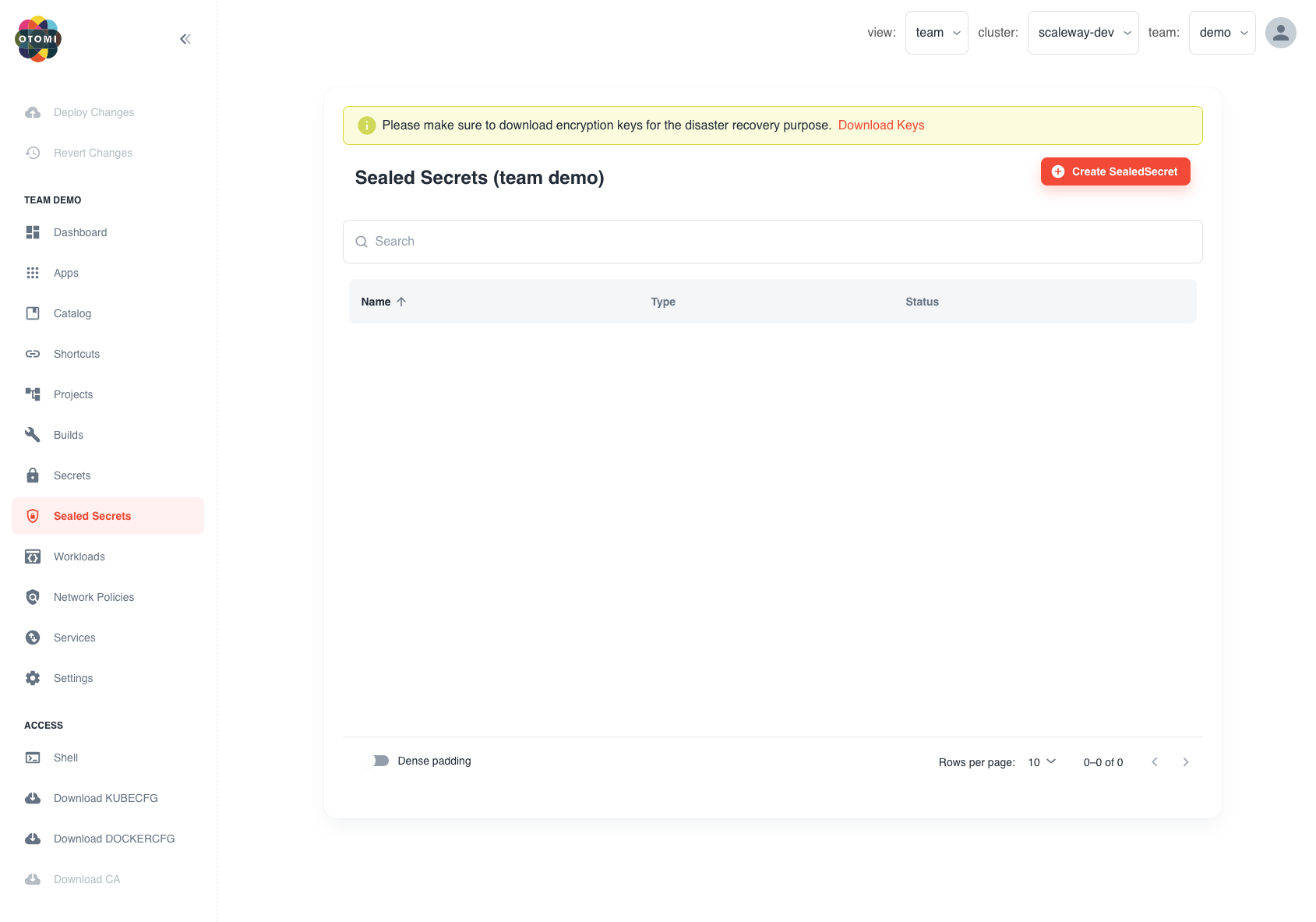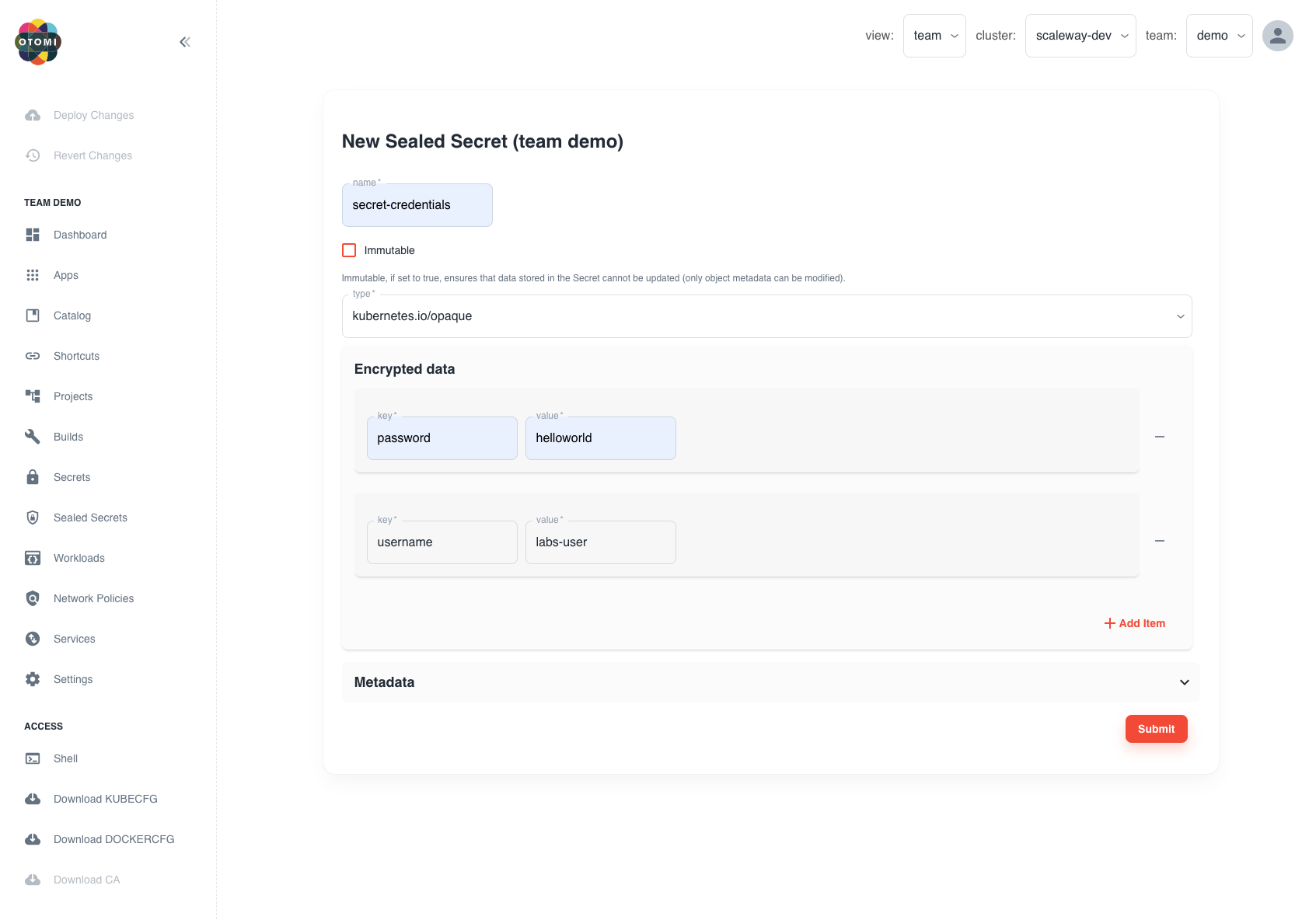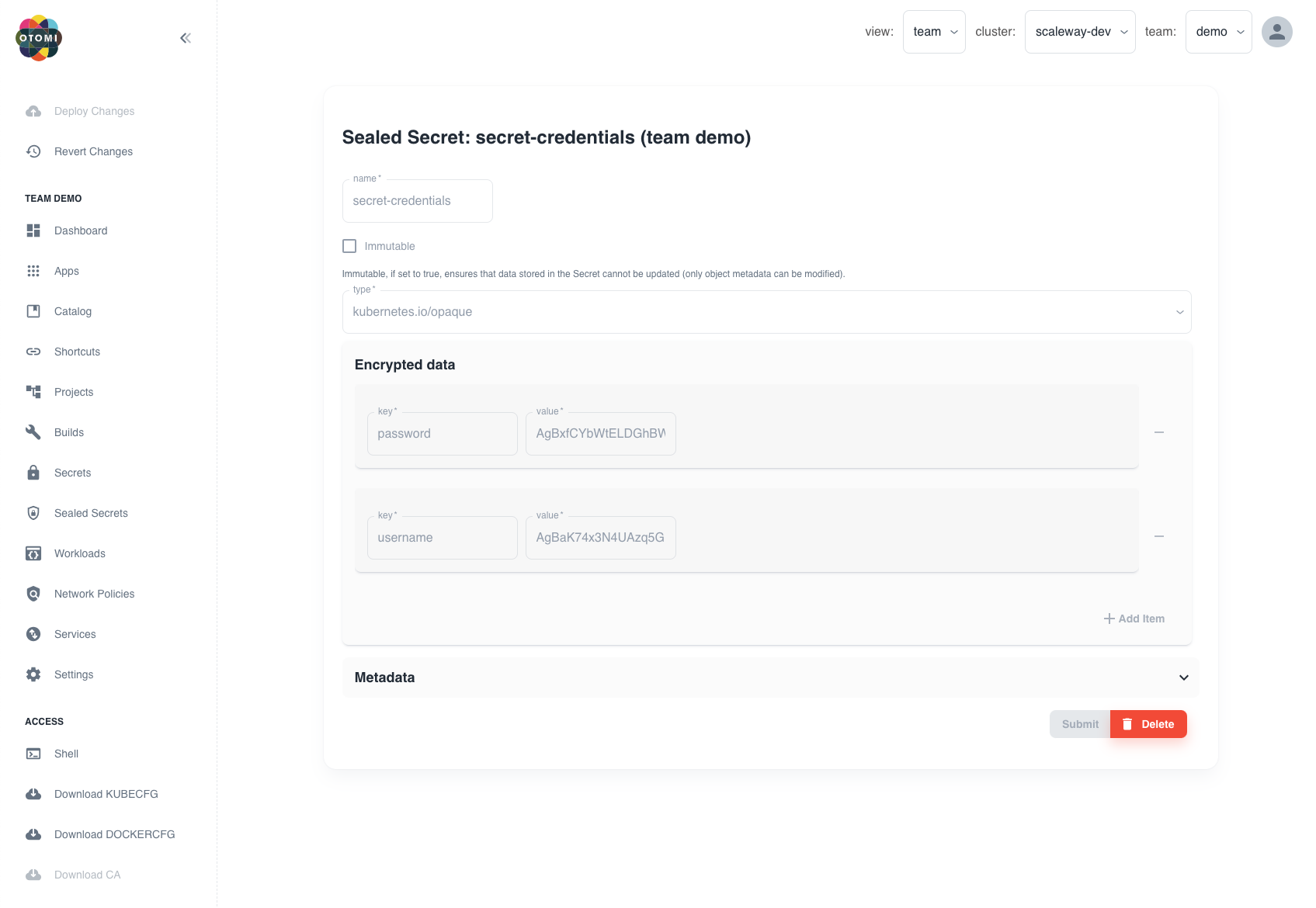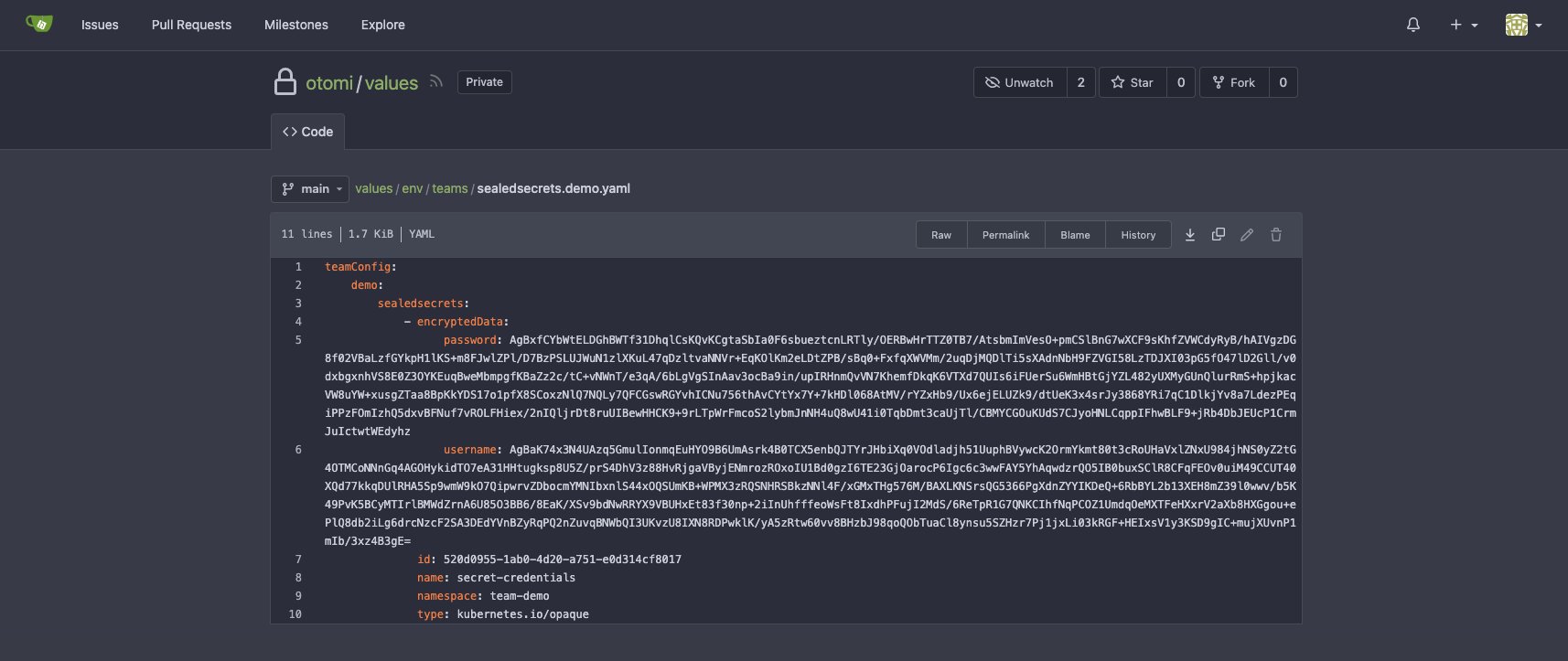Use Sealed Secrets
In this lab we will create sealed secrets and see how to securely sensitive information in git repository.
Enabling Sealed Secrets
As an Admin go to the Apps panel and activate sealed-secrets, afterwards click the deploy button.
If you are not and Admin then ask your Admin to enable the sealed-secrets application.
Creating a Sealed Secret
To create a sealed secret, on the team overview click on the Sealed Secrets in the sidebar and select the Create SealedSecret. This will take you to the page where you can create a sealed secret.

To configure the sealed secret fill in a name for your secret and the desired namespace.
Afterwards you can add the secret data that you want to store in the sealed secret.
The secret data is stored as 'key' 'value'. In the example below we created a secret named 'secret-credentials' in the namespace 'team-demo'.
The secret has the key values password=helloworld and username=labs-user. Now click on submit and Deploy Changes.

Once the secret is created you cannot see the values anymore.

Checking the repository
Now go to Gitea and check the otomi/values repository. You will see that under values/env/teams/sealedsecrets.<team-name>.yaml the secret is stored in yaml, but the values are encrypted.

Checking the cluster
The only way to see the values of the secret is to have access to the cluster and decrypt the secret. The secrets are there stored as base64 encoded values.
kubectl get secret secret-credentials -o yaml -n team-demo
This wil return the secret in yaml format. The values are stored as base64 encoded values.
apiVersion: v1
data:
password: aGVsbG93b3JsZA==
username: bGFicy11c2Vy
kind: Secret
metadata:
creationTimestamp: "2024-04-11T14:33:37Z"
name: secret-credentials
namespace: team-demo
ownerReferences:
- apiVersion: bitnami.com/v1alpha1
controller: true
kind: SealedSecret
name: secret-credentials
uid: 4ead6ffe-f1e9-4b30-91d7-94011af12452
resourceVersion: "4085462"
uid: 48d84c95-0eb1-47d8-acae-b0d3d7474921
type: kubernetes.io/opaque
If you want to decode the secret you can use base64 decode:
kubectl get secret secret-credentials -n team-demo -o jsonpath="{.data.password}" | base64 --decode
helloworld